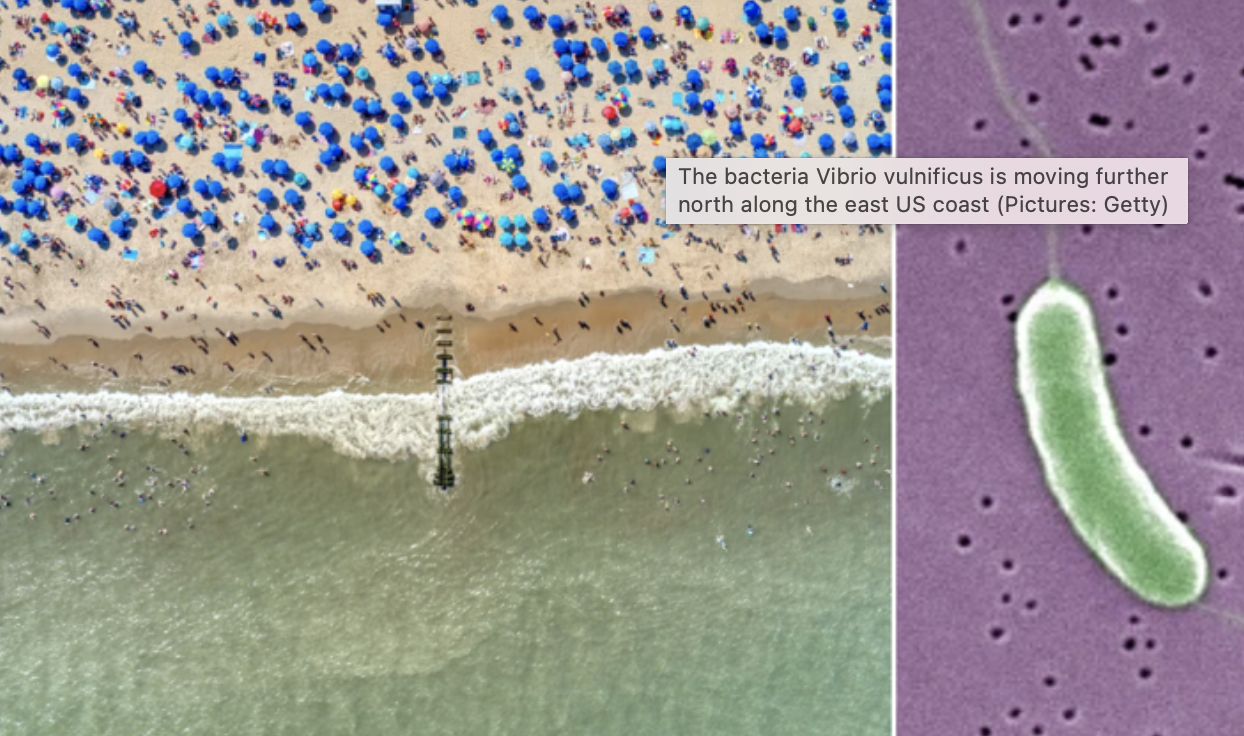A rare ‘flesh-eating’ bacterium that kills almost one in five infected is spreading up the east coast of the US due to warming waters.
Vibrio vulnificus is an ‘opportunistic bacterial pathogen’ found in coastal waters. Exposure to the bacteria through skin lesions can cause necrotising fasciitis, where tissue around the wound dies, requiring urgent removal of the affected area and resulting in limb amputation in around 10% of cases. Although cases are rare, infection by the bacteria leads to death in 18% of cases, sometimes as quickly as 48 hours after exposure.
A team of researchers from the UK, Spain and the US found that between 1988 and 2018, cases on the east coast of the US increased eightfold – from ten to 80 cases annually – and the northernmost occurrence shifted 48km a year as waters warm due to climate change.
In the late 1980s, infections were rare beyond the southern state of Georgia – on roughly the same latitude as Morocco. By 2018, cases were recorded as far north as Philadelphia, which lies on a similar latitude to northern Portugal.

Recently I was in Rhode Island Hospital Cooperative Care Center 3 for Hernia surgery on 04/14-15/23. In the adjoining bed in the room is a person whose skin was being eaten by some bacteria, doctors are working on him. He said he was in his backyard when he got a cut in his leg from something. When it grew to about an inch, he went to doctor, admitted to hospital where they found it had spread up and down his leg, very painful. I thought you may get samples of his skin to research, work with hospital doctors to investigate. I do not remember the room number, but you can call them 401-444-0128 and mention my name (Sarma N. Gullapalli), they can locate the room and the patient. He will be there for two more weeks, so gives you opportunity to collect data. Thank you. Please email me (I am engineer, not doctor, but I am interested in this deadly bacteria which can affect people) what you find. Thank you.